15 start with M start with M

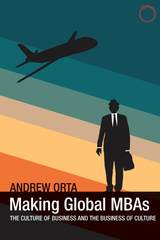
Based upon extensive field research at a set of leading US business schools, this groundbreaking ethnography shows how the culture of MBA training provides a window onto contemporary understandings of capitalism in the context of globalization. Orta details the rituals of MBA life and the ways MBA curricula cultivate at once habits of fast-paced technical competence and “softer” qualities and talents thought to be essential to unlocking the value of international cultural difference, while managing its risks. Making Global MBAs is an essential guide for prospective managers, for practitioners working internationally, and for students of globalization and of the contemporary business and politics of cultural differences.
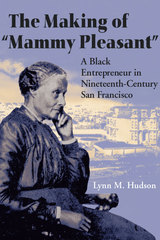
Investigating Mary Ellen Pleasant's convoluted legacy
Mary Ellen Pleasant arrived in Gold Rush-era San Francisco a free black woman with abolitionist convictions and a predilection for entrepreneurial success. Behind the convenient and trusted disguise of "Mammy," she transformed domestic labor into enterprise, amassed remarkable real estate, wealth, and power, and gained notoriety for her work in fighting Jim Crow.
Pleasant's legacy is steeped in scandals and lore. Was she a voodoo queen who traded in sexual secrets? A madam? A murderer? In The Making of "Mammy Pleasant," Lynn M. Hudson examines the folklore of Pleasant's real and imagined powers. Emphasizing the significance of her life in the context of how it has been interpreted or ignored in the larger trends of American history, Hudson integrates fact and speculation culled from periodicals, court cases, diaries, letters, Pleasant's interviews with the San Francisco press, and various biographical and fictional accounts.
Addressing the lack of a historical record of black women's lives, the author argues that the silences and mysteries of Pleasant's past, whether never recorded or intentionally omitted, reveal as much about her life as what has been documented. Through Pleasant's life, Hudson also interrogates the constructions of race, gender, and sexuality during the formative years of California's economy and challenges popular mythology about the liberatory sexual culture of the American West.

“It reads as if you have an expert coach in business reference helping you each step of the way." That’s how Academic BRASS summarized the first edition of this unique, unparalleled resource authored by Ross, a past winner of the Gale Cengage Learning Award for Excellence in Business Librarianship. Now she’s revised and updated it to tackle even more “bizref” headscratchers related to investment and finance, consumer behavior and statistics, company, and industry research. In addition to general reference strategies in each chapter that give you the lay of the land, inside you’ll find
- overviews of more than fifty databases for articles, company and industry, directories, consumer, international, or raw data;
- 33 real-life "Stumper" questions, all new for this edition, drawn from librarians in the field;
- why asking “who cares about this kind of question” reveals potential sources;
- techniques for applying reference interview techniques to business questions;
- advice on where to find the numbers for answering finance questions;
- expanded coverage of venture capital research and business information literacy;
- “Start Making Sense” suggestions for further skill-building; and
- questions to consider when building a bizref collection.
This is the guide to keep at your side when serving business students, job-seekers, investors, or entrepreneurs in your library.

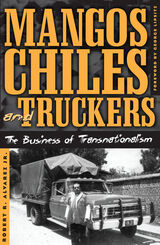
Contrary to common perceptions in postnational studies, Alvarez shows how the nation-state enacts and connects with the transnational, crossing borders in ways that underwrite new technology and trade. Emphasizing the importance and control of the nation-state in the global process, Mangos, Chiles, and Truckers demonstrates how people make meaning as they struggle with the economic circumstances of their lives, creating cultural traditions and giving new value to old customs and practices.
Robert R. Alvarez Jr. is professor of ethnic studies at the University of California, San Diego.
George Lipsitz is professor of American studies at the University of California, Santa Cruz.
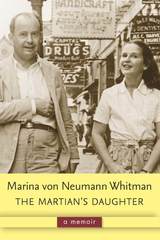
One of the five Hungarian scientific geniuses dubbed "the Martians" by their colleagues, John von Neumann is often hailed as the greatest mathematician of the twentieth century and even as the greatest scientist after Einstein. He was a key figure in the Manhattan Project; the inventor of game theory; the pioneer developer of the modern stored-program electronic computer; and an adviser to the top echelons of the American military establishment. In The Martian's Daughter, Marina von Neumann Whitman reveals intimate details about the famed scientist and explores how the cosmopolitan environment in which she was immersed, the demanding expectations of her parents, and her own struggles to emerge from the shadow of a larger-than-life parent shaped her life and work.
Unfortunately, von Neumann did not live to see his daughter rise to become the first or highest-ranking woman in a variety of arenas. Whitman became a noted academic during the 1960s and '70s, casting her teaching and writing in the framework of globalization before the word had been invented; became the first woman ever to serve on the President's Council of Economic Advisers and participated actively in U.S. efforts to reshape the international monetary and financial system during the early 1970s; pioneered the role of women on the boards of leading multinational corporations; and became the highest-ranking female executive in the American auto industry in the 1980s. In her memoir, Whitman quotes from personal letters from her father and describes her interactions with such figures as Roger Smith of GM and President Nixon. She also details the difficulties she encountered as an early entrant into a world dominated by men and how she overcame the obstacles to, in her words, "have it all."
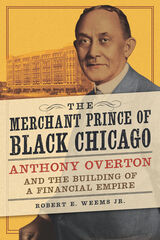
Robert E. Weems Jr. restores Overton to his rightful place in American business history. Dispelling stubborn myths, he traces Overton's rise from mentorship by Booker T. Washington, through early failures, to a fateful move to Chicago in 1911. There, Overton started a popular magazine aimed at African American women that helped him dramatically grow his cosmetics firm. Overton went on to become the first African American to head a major business conglomerate, only to lose significant parts of his businesses—and his public persona as ”the merchant prince of his race”—in the Depression, before rebounding once again in the early 1940s.
Revealing and panoramic, The Merchant Prince of Black Chicago weaves the fascinating life story of an African American trailblazer through the eventful history of his times.
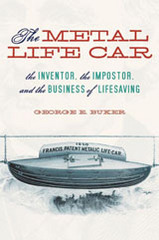
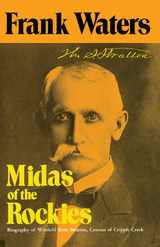
This reprint makes available again Frank Waters’ dramatic and colorful 1937 biography of Winfield Scott Stratton, the man who struck it rich at the foot of Pike’s Peak and turned Cripple Creek into the greatest gold camp on earth. More than regional history, Midas of the Rockies is a story so fabulously impossible and yet so painfully true that it commends itself to the whole of America, the only earth, the only people who could have created it.
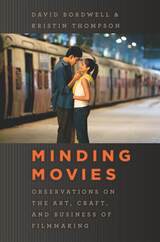
David Bordwell and Kristin Thompson are two of America’s preeminent film scholars. You would be hard pressed to find a serious student of the cinema who hasn’t spent at least a few hours huddled with their seminal introduction to the field—Film Art, now in its ninth edition—or a cable television junkie unaware that the Independent Film Channel sagely christened them the “Critics of the Naughts.” Since launching their blog Observations on Film Art in 2006, the two have added web virtuosos to their growing list of accolades, pitching unconventional long-form pieces engaged with film artistry that have helped to redefine cinematic storytelling for a new age and audience.
Minding Movies presents a selection from over three hundred essays on genre movies, art films, animation, and the business of Hollywood that have graced Bordwell and Thompson’s blog. Informal pieces, conversational in tone but grounded in three decades of authoritative research, the essays gathered here range from in-depth analyses of individual films such as Slumdog Millionaire and Inglourious Basterds to adjustments of Hollywood media claims and forays into cinematic humor. For Bordwell and Thompson, the most fruitful place to begin is how movies are made, how they work, and how they work on us. Written for film lovers, these essays—on topics ranging from Borat to blockbusters and back again—will delight current fans and gain new enthusiasts.
Serious but not solemn, vibrantly informative without condescension, and above all illuminating reading, Minding Movies offers ideas sure to set film lovers thinking—and keep them returning to the silver screen.

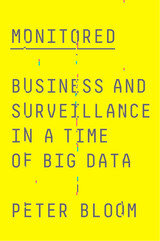
What does this technocratic ideology and surveillance-heavy culture reveal about the deeper reality of modern society? Monitored investigates the history and implications of this modern accountability paradox. Peter Bloom reveals pervasive monitoring practices which mask how at its heart, the elite remains socially and ethically out of control.
Challenging their exploitive 'accounting power', Bloom demands that the systems that administer our lives are oriented to social liberation and new ways of being in the world.

The House of Morgan was the personification of economic power and the symbol of capitalism in the late nineteenth and early twentieth centuries. Other entrepreneurs were wealthier—industrialists like Rockefeller, Carnegie, and Duke—but none was relied upon more by business and government or better known in the world of high finance. Vincent Carosso, using for the first time the large collections that constitute the Morgans’ own business records, as well as other private papers and public archives, has constructed an in-depth account of the evolution, operations, and internal management of the Morgan banks at London, New York, Philadelphia, and Paris, from the time Junius Spencer Morgan left his Boston business to become a London banker to the death of his son and successor, John Pierpont Morgan.
The new data throw light on the Morgans’ business strategies, policies, and practices in financing such vast American enterprises as railroads, steel, farm equipment, communications, and the electrical industry. They also reveal the Morgan firms’ dealings in the political arena in their role as financiers of the United States government—Morgan banks funded the Civil War debt, met the Army payroll in 1877, stopped disastrous outflows of U.S. gold in 1894 and 1895, and acted as the country’s central bank in the panic of 1907—and as bankers for Mexico, Argentina, and many other governments.
This intricate and comprehensive history of the mechanisms of international finance, the waning of private banking houses and the evolution of commercial and investment banking, the risks and profits of high finance will interest historians of business, economics, the United States, and the modern world.
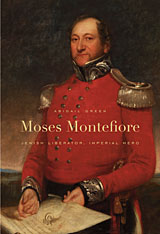
Humanitarian, philanthropist, and campaigner for Jewish emancipation on a grand scale, Sir Moses Montefiore (1784–1885) was the preeminent Jewish figure of the nineteenth century—and one of the first truly global celebrities. His story, told here in full for the first time, is a remarkable and illuminating tale of diplomacy and adventure. Abigail Green’s sweeping biography follows Montefiore through the realms of court and ghetto, tsar and sultan, synagogue and stock exchange.
Interweaving the public triumph of Montefiore’s foreign missions with the private tragedy of his childless marriage, this book brings the diversity of nineteenth-century Jewry brilliantly to life—from London to Jerusalem, Rome to St. Petersburg, Morocco to Istanbul. Here we see the origins of Zionism and the rise of international Jewish consciousness, the faltering birth of international human rights, and the making of the modern Middle East. With the globalization and mobilization of religious identities now at the top of the political agenda, Montefiore’s life story is relevant as never before.
Mining materials from eleven countries in nine languages, Green’s masterly biography bridges the East-West divide in modern Jewish history, presenting the transformation of Jewish life in Europe, the Middle East, and the New World as part of a single global phenomenon. As it reestablishes Montefiore’s status as a major historical player, it also restores a significant chapter to the history of our modern world.
READERS
Browse our collection.
PUBLISHERS
See BiblioVault's publisher services.
STUDENT SERVICES
Files for college accessibility offices.
UChicago Accessibility Resources
home | accessibility | search | about | contact us
BiblioVault ® 2001 - 2024
The University of Chicago Press









